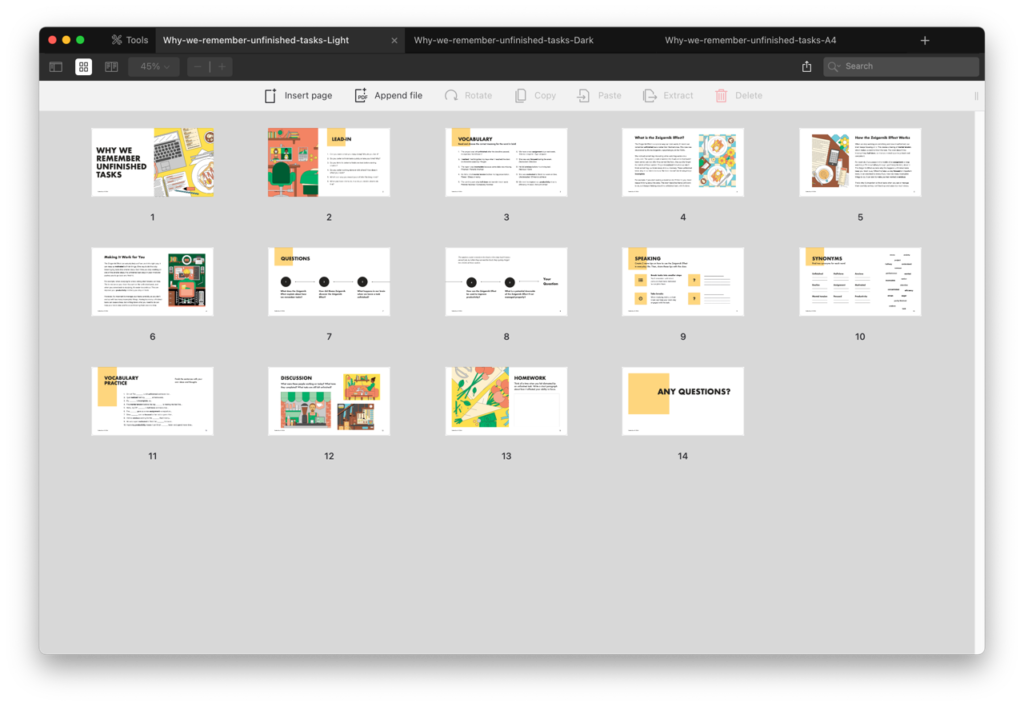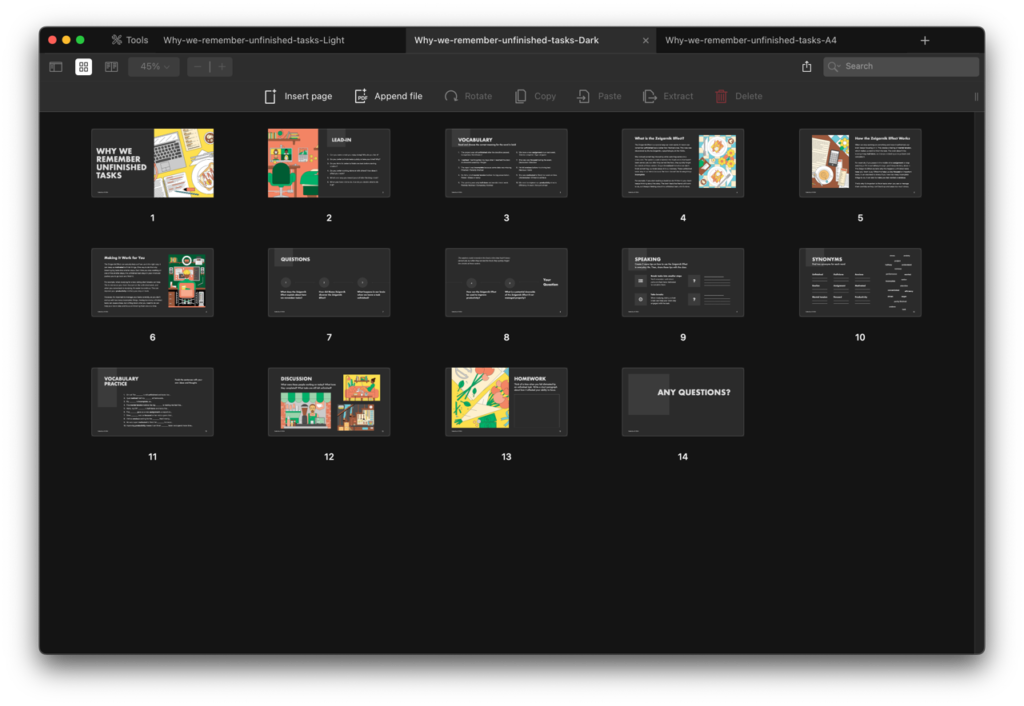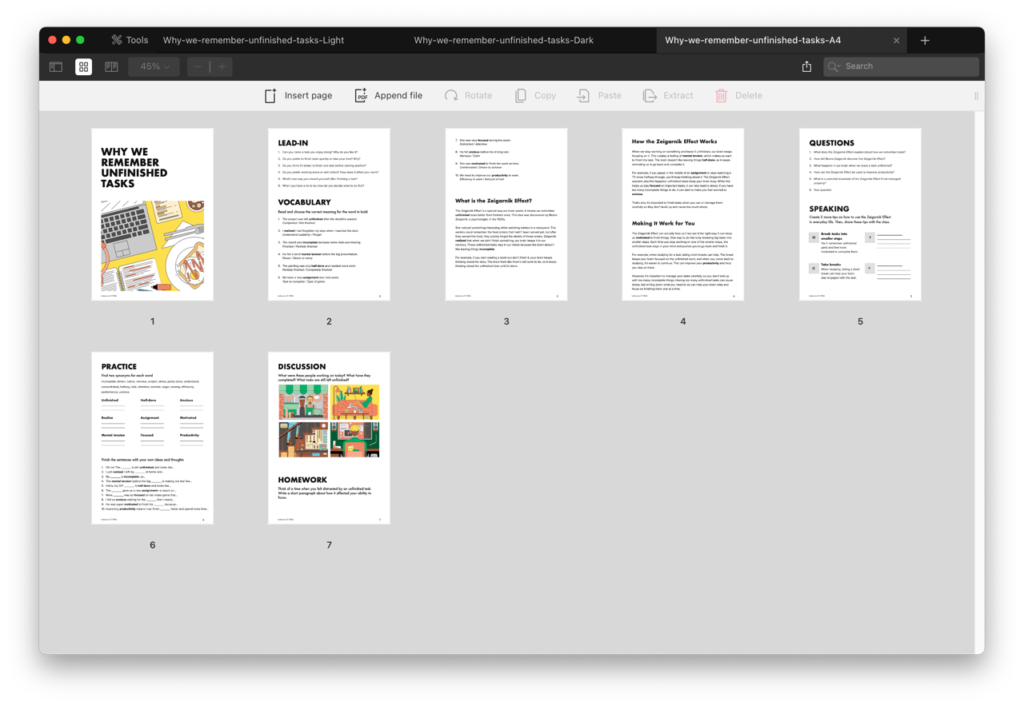Why We Remember Unfinished Tasks

This B1 ESL lesson introduces the Zeigarnik Effect, which explains why we remember unfinished tasks more than completed ones. Students explore how this psychological concept affects motivation and focus through reading, examples, and vocabulary activities. The lesson also includes tips on applying the Zeigarnik Effect in daily life to boost productivity.
| Level | Vocabulary | Lesson Time |
| B1 / Intermediate | 10 words | 60 min |



Vocabulary
- Unfinished
- Realize
- Incomplete
- Mental tension
- Half-done
- Assignment
- Focused
- Anxious
- Motivated
- Productivity
Contents
- Lead-in
- Vocabulary
- Reading
- Questions
- Speaking
- Synonyms
- Vocabulary practice
- Discussion
- Homework
Lead-in
This intermediate ESL lesson begins begins with five questions designed to explore topics such as task management, completing work, and rewarding yourself upon finishing. Feel free to address as many questions as needed to fully engage with the activity.
Vocabulary
The vocabulary page presents key terms within sentences, requiring students to read and select the correct meaning for each word. Be sure to discuss any unfamiliar words with the class and provide additional examples to enhance their understanding.
Reading, Questions, Discussion
In the reading section, students will explore the Zeigarnik Effect, including its impact on our brain, why we remember unfinished tasks better than completed ones, its history, real-life examples, and practical ways to use the effect to boost motivation and task completion. You can choose to have students read the paragraphs individually or take turns. After reading, students will answer comprehension questions and create one question of their own to ask their classmates. The next activity extends the discussion on the Zeigarnik Effect by having students read example suggestions on how to apply it in everyday life. Students will then create two additional tips for using the Zeigarnik Effect to enhance their daily routines.
Synonyms, Vocabulary practice
The practice pages include two activities. First, students will find two synonyms for each word provided on the page. While this is a straightforward task, be sure to offer support as needed. The next page features vocabulary practice with 10 sentences containing target words. Students will complete these sentences with their own ideas and fill in the blanks with appropriate words.
Discussion
The discussion page includes three colorful images of people either working or having completed tasks. Students will discuss what these people were working on, what tasks they have finished, and which tasks are still left unfinished. Allocate as much time as needed for a more in-depth discussion.
Homework
The homework page involves writing a paragraph. Students should reflect on a time when they felt distracted by an unfinished task and write a short paragraph about it. You can decide on the length of the paragraph, but we recommend aiming for 150 to 200 words.



